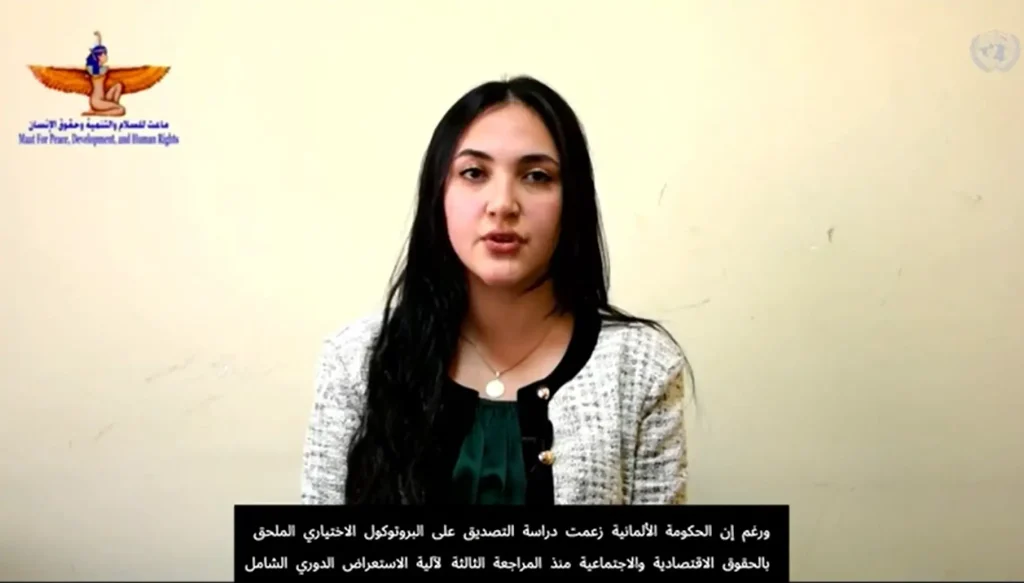Maat issues a new paper entitled ” Toward a permanent national mechanism to follow up the implementation of Egypt's pledges before international mechanisms “
Issuing a law to establish the authority and represent civil society by 50%, the most prominent recommendations
The Policy Analysis Unit at Maat Foundation issued a new policy analysis paper entitled: Toward a permanent national mechanism to follow up the implementation of Egypt's pledges before international mechanisms This paper comes within the framework of the “Public Policy Analysis and Human Rights Unit” interest in the institution, the drafting of a paper that talks about the importance of establishing a national committee to follow up on the universal periodic review. This paper comes within the framework of the institution’s implementation of the “UPR project as a tool to improve public policies during the transitional phase.” “, Funded by the European Union during the period 2016-2017.
The paper defined the universal periodic review mechanism, then the mechanisms for forming follow-up committees after the universal periodic review in some Arab countries, and moved to present the relationship of Egypt and the review mechanism. The paper also discussed the problems of the current framework to follow up on the implementation of the review recommendations in Egypt.
The paper concluded with a set of recommendations, the most prominent of which was the need for parliament to issue a law to establish a permanent national body whose task is to follow up the implementation of Egypt's obligations and commitments before the universal periodic review, human rights treaty committees, and other international mechanisms for the protection of human rights.
The paper also recommended that this body be competent to develop an annual plan for training all concerned parties, in cooperation with civil society organizations, on the concepts of international mechanisms and how to prepare reports or respond to reports of the international bodies concerned with them.
At the level of the formation of the committee, the paper recommended that the commission be composed of representatives of the concerned government agencies, civil society, specialized national councils, the committee concerned with parliament, as well as some experts, provided that the representation of civil society is not less than 50% from the formation of the committee.











